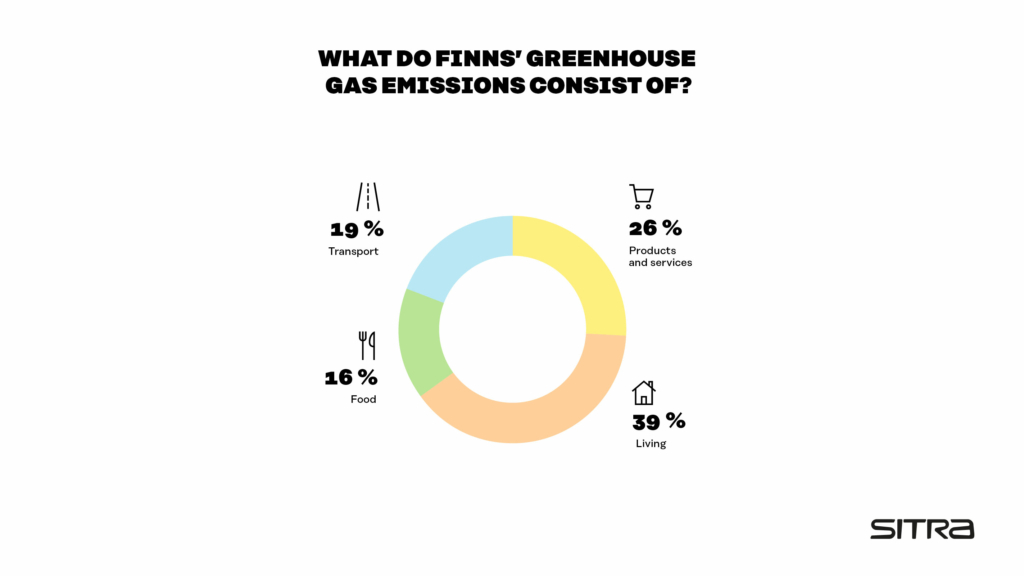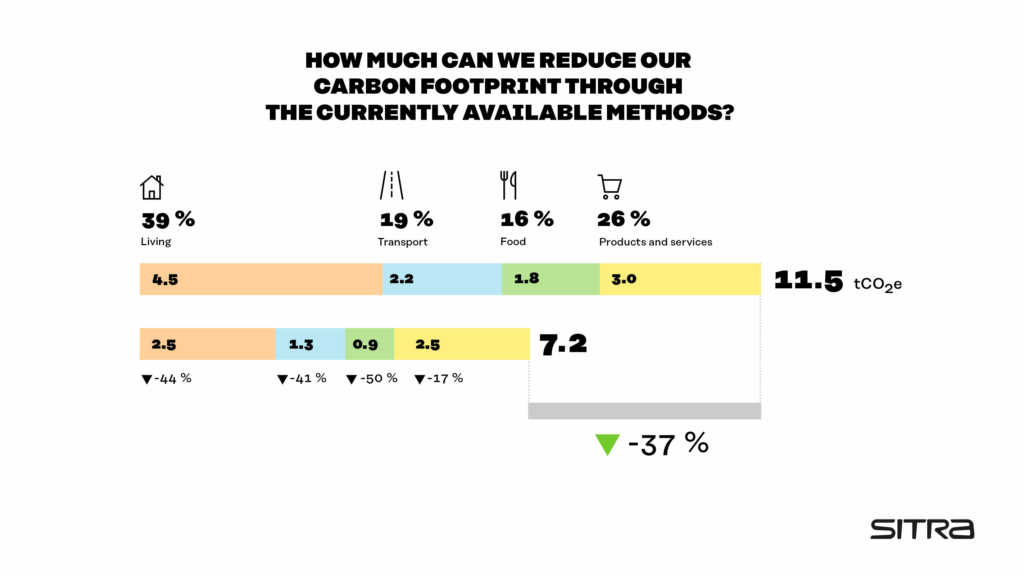Climate change mitigation requires action across the whole of society. Households’ share of emissions and their potential to have an effect on the reduction of emissions are not always taken into consideration. A new report by the Finnish Environment Institute (SYKE) – “Consumption choices to decrease the personal carbon footprints of Finns” – focuses on this problem and finds out how much ordinary Finns can reduce greenhouse gas emissions through their own consumption choices.
Household consumption causes 72% of all greenhouse gas emissions in the world. According to the study, the share is very similar in Finland: household consumption causes 68% of domestic greenhouse gas emissions. The remaining 32% are generated by public consumption and investments.
SYKE’s report combines results from earlier reports and research. The report presents ways to reduce greenhouse gas emissions from 11.5 tonnes of carbon dioxide equivalent (tCO2e) to 7.2 tonnes a year. The reductions are brought about by the choices made in terms of living, transport, food and the consumption of other products and services. The report presents both easy and quick solutions, as well as measures that require slightly more planning.

The average greenhouse gas emissions caused by consumption in Finland in 2010 – 11.5 tCO2e per person – are the starting point for the calculation. On the European scale, these per capita greenhouse gas emissions caused by consumption are high. However, they are lower than in Australia or the USA, for example. The average value for the entire world was 6.0 tCO2e in 2010, and, compared to this figure, emissions in Finland were almost twice as high.
The measures recommended in the report can be achieved through currently available technologies and solutions. These solutions are linked to the most important sources of emissions: emissions from living and energy consumption, driving and food.
The report also deals with the consumption of goods and services. The fact that this category consists of a wide variety of products leads to some challenges. The consumer perspective means that we take into consideration consumption in Finland regardless of the country in which the products were manufactured. This way, the figure includes emissions from the entire processing chain.

Consumer choices made by households have an effect on climate change mitigation. Low-carbon consumption can be promoted, for instance, by changing business models, that is, by moving the focus of consumers from products to services, and by information guidance, such as through the use of different eco-labels. In addition to product labelling, information guidance also includes campaigns and tools targeted at consumers, such as carbon footprint calculators. Public guidance has an impact on product development too. Examples of this include household appliances’ energy labelling and the removal of certain energy-intensive light bulbs from the market.
The Finnish Environment Institute’s (SYKE) report focuses on greenhouse gas emissions. The sustainability of consumption can also be studied from the perspective of other environmental footprints and indicators.
Sitra’s 100 smart ways website offers more ideas for living a good life within the limits of the earth’s carrying capacity. The activities can not only improve quality of life but also reduce the environmental impacts of daily life.
- The report “Consumption choices to decrease the personal carbon footprints of Finns” is available on Sitra’s website.
















Recommended
Have some more.